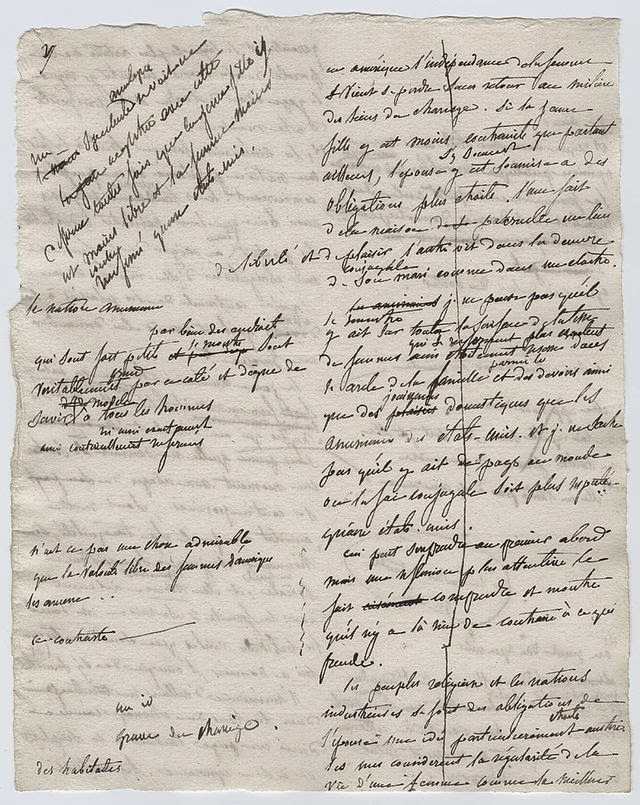As the first President of the United
States of America stood before an admiring public in New York City to share his
thoughts on his inaugural day on April 30th, 1789, he said “There is no truth more thoroughly
established than that there exists in the economy and course of nature an
indissoluble union between virtue and happiness.” Retired General George Washington then went on
to explain what his administration would be all about: “Our national policy will be laid in the powerful and immutable
principles of the private morality of its citizens”.
One of my favorite series of
lectures on our nation’s founding, given by Professor Daniel N. Robinson of
Oxford University is in fact titled American
Ideals: Founding a “Republic of Virtue”.
The
word virtue as used here, and understood by our founding fathers, referred to
the individual character of people willing to set aside self-interest in favor
of the daily living of Christian (Puritan) principles in the interest of “each
other”. For the founders, Robinson says, “there was an inextricable connection
among moral freedom, political liberty and that form of self-cultivation that
results in a person of virtue.”
From the first permanent English
colonies in 1620 to the first revolutionary gunfire at Lexington and Concord,
155 years of salutary neglect by Parliament had permitted American colonists
time and space to grow into a very different people than those first settlers
experimenting with self determination and local decision-making by common
consent. Reluctant revolutionaries though most of them were, circumstances
conspired to overcome a host of regional jealousies and cultural differences in
bringing together thirteen often-rival colonies in a loose confederation
unlikely – without a series of “miracles” – to incubate into a single nation.
That all of this happened –
including the “miracles” – amazed Europeans, watching from afar. It was this
curiosity which brought the young brilliant French scholar and attorney Alexis
de Tocqueville to the shores of the New World. Traveling with his friend Gustave de Beaumont, Tocqueville spends much
of 1831 and into 1832 visiting America’s cities and centers of government and culture,
and its small towns, villages and frontier fringes hoping to learn something
about that infant democratic experiment which might prove meaningful to the
“revolution” going on in France. His astute and far-reaching observations would
see light in his two-volume study, Democracy
in America, published in France in 1835 and 1840. (It has been said that
these works constitute “the best book ever about America”, and “the best book
ever about democracy”.)
: Still intact today, an original hand-written
manuscript page of Tocqueville’s notes on 19th Century America. Courtesy Yale
University Rare Book Library
Among Tocqueville’s observations was
that in America, democracy trickled “up” rather than “down”, beginning with the
people, who were long accustomed to participating in local and regional
government up close. There, he opined that the jury system likewise played an
important role in familiarizing the population with the justice system in a
very personal way; virtually every adult having served on a jury and being
immersed in what we so oft-handedly describe as “the rule of law” at work. He
was further impressed by the presence of three important and revealing objects
he would find in every home he visited, whether a town house or a pioneer
cabin: an axe, a bible, and a newspaper. Americans were accustomed to hard
work, were invested in their religious faith and were educated and informed.
(Frontier Americans as a matter of fact read more books each year than their
“cultured” cousins in London by more than one account of the time.)
Tocqueville was quick to notice that
unlike European church-goers, Americans – regardless of specific denomination –
took their faith very personally, assuming the view that every person had the
right to speak to, and seek help and inspiration directly from their God. The relatively-smaller Jewish enclave in
the young Republic was no different.
In the end, the perspicacious Alexis
de Tocqueville doubted that the unique form of democratic freedom which had
developed in America could be easily duplicated anywhere else. And as we
observe one more Independence Day, it is worth reminding ourselves that most of
our founding fathers worried that with the feared growth of factionalism and a
diminution of that personal and individual morality Washington so cherished,
our Republic of virtue might one day itself be at risk.
HAPPY BIRTHDAY, AMERICA!






